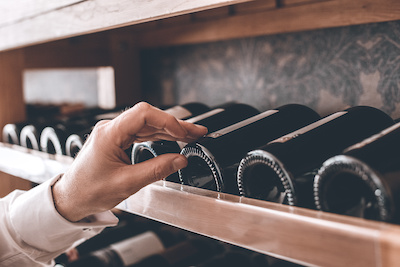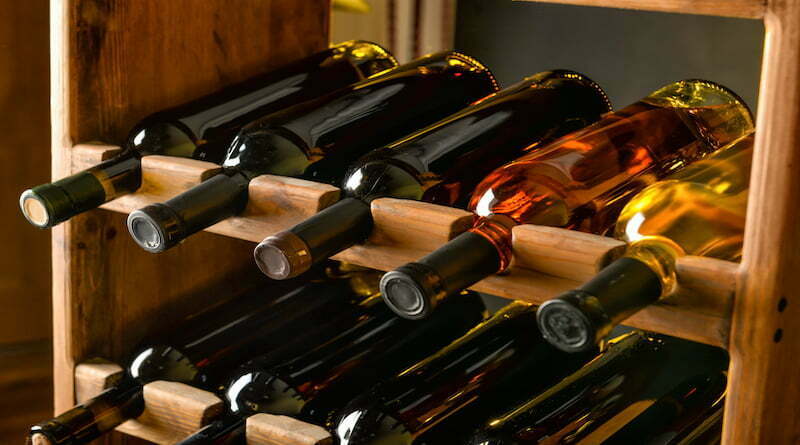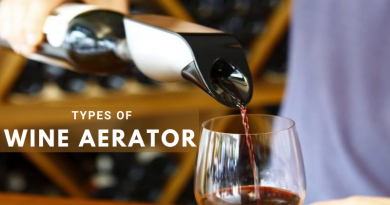How To Store Wine At Home
When beginning a collection of wines, the first thing to remember is that they’re delicate beverages. If you aren’t careful, many things may go wrong and turn your wine into vinegar. Second, you should know that not every wine improves with age. The expiration dates on some of them mean that they must be consumed within the next few years.
If you buy a wine that may mature, the next step is to make sure that you store it properly. This way, your wine will maintain its high quality and worth for decades. However, even the most expensive wine will go wrong and waste your money if not properly stored. And that’s something you definitely wouldn’t have wanted.
So, here’s a guide on how to properly store your wine at home:
Store In The Right Temperature

Storing wine at an improper temperature will ruin it. Therefore, it’s crucial to pay attention to the thermometer. Keep in mind that heat is the wine’s worst enemy since it causes the fragrance and flavor to flatten out and the acidity to evaporate. This will cause your wine to have an unusual raisin flavor.
Wine should be stored between 45- and 65 degrees Fahrenheit, with 55 degrees being optimal. If the temperature drops too low, your wine might freeze. However, excessive heat might hasten wine’s aging process.
It’s also essential to keep the wine at a consistent temperature; the cork may easily be damaged by sudden shifts. Therefore, air will get into the wine and destroy it, or it will leak out.
Invest in a built in wine cooler to extend its shelf life significantly. Suppose you don’t have access to a wine refrigerator. In that case, store it in a cool, dark place where the temperature will not fluctuate too much, such as a basement or closet.
Pay Attention To Humidity
Keeping the humidity levels stable is just as important as keeping the temperature constant. How long your wine lasts depends on the humidity levels in the room you keep it in.
The recommended humidity range for storing wine is between 60 and 80 percent, with 70 being the sweet spot. The cork in a bottle of wine might dry out and allow oxygen to enter if the humidity drops below 60 percent. However, mold can grow on the labels and adhesive if the environment is too humid.
A peeled-off wine label won’t necessarily lose quality, but it won’t look as good on display or in the store. Put a basin of water or a humidifier in the storage room if you’re concerned about the air being too dry.
Keep Away From Light
Vampires and wines share some funny similarities. They need to avoid light, especially UV radiation. Wine’s polyphenol concentration is responsible for many sensory features, including color, astringency, bitterness, and taste. It may undergo a chemical reaction when exposed to light.
There’s a risk that wine’s flavor and aroma can diminish if left out in the open. Consequently, wine exposed to ultraviolet radiation can age prematurely. Because of this, most wines are kept in dark bottles, which serve as the equivalent of sunglasses. It protects wine content from deterioration due to exposure to light. You can store bottles in a box or gently wrap them in fabric if you can’t keep them away from light.
Store In Horizontal Stacks
The cork stays in contact with the wine when it’s stored horizontally. This maintains the cork’s moisture and seals off oxygen. It also prevents the wine from becoming spoiled. More importantly, you’re aiding the wine’s longevity by doing so. After all, stashing your wine sideways is the best method to maximize space.
However, the horizontal approach isn’t essential if you want to finish the bottle within a year after purchase. The same holds true for wine bottles sealed with glass or screwtops.
Avoid Vibration
Vibration is another thing to be aware of when storing wine. Any form of extended jostling or regular shaking might cause your wine to age before its time.
Some wines may become unpleasant due to a change in chemical structure and the disruption of sediment at the bottom. Thus, you should store your wine as far away as possible from the washing machine, dryer, and audio system, all of which generate vibrations.
Furthermore, moving your wine around too often might also degrade its taste. Therefore, avoid piling wine on top of one another so that you won’t knock over the others when you reach for one.
Conclusion
Wine coolers are a worthwhile investment if you want to start a collection of age-worthy wines. However, if you don’t have such a device, don’t worry. As long as your wine storage facility is at the ideal temperature and humidity, you can still ensure that your wine stays in prime condition. Also, shield them from any vibrations or light that might disrupt them. Finally, keep them horizontally to preserve their quality and longevity.




